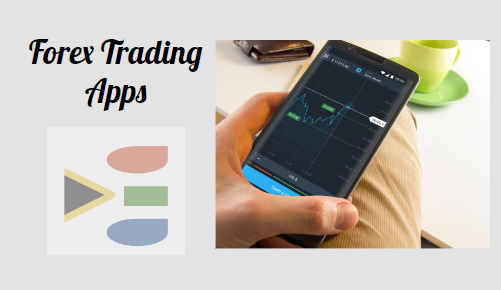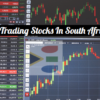With retail trading continuing to grow at a pace, the number, and quality of forex trading apps South Africa has available have improved rather substantially. But with so many options now available, how do you begin to choose the right app for you?
Which app is best for forex trading? Some Points To Consider
Here are some factors to consider:
1. Fees and commissions – What are the fees associated with trades and transfers?
Here you want to consider trading fees, aswell as non-trading fees to get a full picture of the value provided by your forex trading app.
Trading fees include things such as spreads, commissions, overnight fees, rollover fees, and margin maintenance fees, along with any other fee that might be linked to you actually trading on the app. Things to look out for in the non-trading fees will include deposit fees, withdrawal fees, inactivity fees, account fees, and anything else that may be in the fine print that is charged but not directly linked to your trades.
2. Research and analysis tools – Does the app provide analysis tools to help inform your trades, such as charts and technical indicators?
This is especially important for those starting out in forex trading, as well as those who are looking to improve their trading strategy. The technical analysis tools should be of sufficient number to cover your trading style, with a clear charting function that allows you to get the most out of the tools on a smaller screen. Being able to access a thorough range of tools on the go can be incredibly useful, especially if you are planning to trade mostly on the app.
3. Customer support – How does the app handle customer support? Is it accessible and prompt in its response time, both during and outside regular business hours?
Things can go wrong in forex trading, whether it’s a technical issue with the app or a mistake on your part. In these cases, having reliable customer support to turn to can reduce stress and minimize potential losses. Look for an app that offers support through multiple channels, as well as having a good response time to any queries or issues you may have.
4. Platform and user interface – Is the app easy to navigate and use? Can you easily carry out trades without confusion or frustration?
Even if the app has all the features and functions you might need, it can be of little use if the trading platform and user interface are difficult to navigate. Look for an app with a clean design, clearly labeled buttons and functions, as well as any helpful tutorials or guides available to help you get started.
5.Range of instruments available – Does the app offer the full range of instruments that you intend to trade, or focus on?
It’s important to consider the specific instruments that you want access to, be it a particular currency pair or certain commodities. Make sure the forex trading apps you are considering offer these instruments for trade, as well as any others you may want in the future. It can also be helpful to see if the app allows for other types of trades, such as stock and options trading, in case you want to diversify your portfolio.
6. Additional features – Does the app offer additional features such as alerts, stop losses, and limit orders?
These features can be helpful in managing your trades, setting up automatic actions such as placing a limit order or setting a stop loss to minimize potential losses. It’s worth checking if the app has any other helpful features that could benefit your trading strategy.
7. Reputation and regulatory compliance – Is the app reputable and does it adhere to regulatory compliance?
It’s important to choose a forex trading app that is trustworthy and follows regulations, as this can help protect your funds and ensure fair trades. Look for any red flags such as negative reviews or warnings from regulatory bodies, as well as if the app is registered with a reputable regulatory body.
Overall, it’s important to do research and consider all aspects of a forex trading app before making a decision. Not all forex trading apps are created equal, so do make sure that those on your list fit with your specific trading needs and style, as well as offering a reliable and user-friendly platform. By taking the time to find the right app for you, it can greatly benefit your forex trading experience.

How to use a forex trading app
Most forex trading apps in South Africa these days are very intuitive when it comes to setting them up. As you can see from this screen, the process is now usually just a few steps in order to get a demo account activated. After this, you will need to provide personal information and verify your identity, before funding the account with a deposit level you are comfortable with.
After that, it is on to the basics of opening and closing a trade on the app, which again, has been make quite a lot easier in recent times. The app will have a menu for selecting the currency pair you want to trade, and from there, it is simply a matter of entering the amount you want to buy or sell and executing the trade. You can see here another example of the trade execution screen, and the process is usually just a few taps of the screen.
The other things you will want to know how to use on a forex trading app include the charts, indicators, and any other additional features that may be provided to give you added value.
1. Before starting, make sure you have chosen a reputable and reliable forex trading app that is authorized by the South African Financial Sector Conduct Authority (FSCA).
2. Set up your account by providing personal information, verifying your identity, and linking a bank account for deposits and withdrawals.
3. Familiarize yourself with the app’s interface and features, such as chart analysis tools, live market updates, and order execution.
4. Conduct research and strategize your trades before placing any orders.
5. Monitor your trades and adjust accordingly to optimize profits and minimize losses.
6. Keep track of all transactions for tax purposes and withdraw funds as needed.
7. Stay up to date on market news and regulations to make informed decisions.
How do forex trading apps make money?
Forex trading apps make money by charging a fee for connecting traders to the forex market, as well as fees for any additional services such as analysis or educational materials. These fees are typically a small percentage of the overall trade, the spread.
Some forex trading apps also generate revenue through advertising and offering premium upgrades or subscriptions.
Who regulates forex trading apps South Africa?
The South African financial regulator, the Financial Sector Conduct Authority (FSCA) is responsible for regulating and supervising forex brokers operating in the country. When choosing between forex trading apps South Africa, it is important to ensure that it is licensed and regulated by the FSCA.












